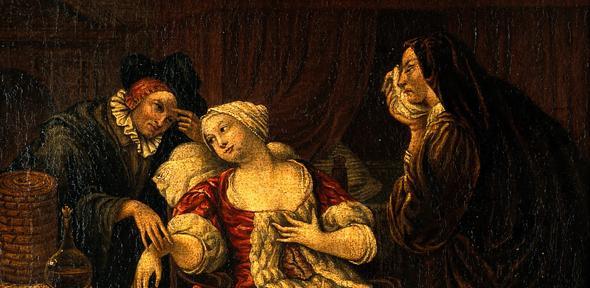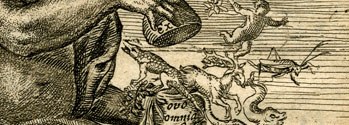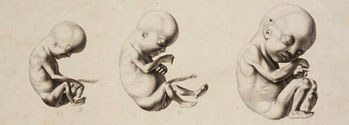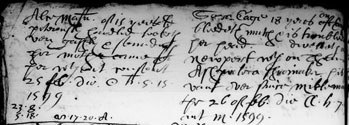
Wednesday 22 October 2014
6.00–7.30pm
Old Library, Pembroke College, Trumpington Street, Cambridge
Continuing the series of debates at the Festival of Ideas held by members of the 'Generation to Reproduction' project on IVF, hospital birth, and population growth, this debate considers whether, historically, menstruation is best understood as necessary to a woman's health. Men and women are invited to join historians, a physician, and a campaigner for better education about menstruation to grapple with this key topic in the history of women's medicine and the politics of women's bodies.
The question 'Is menstruation healthy?' has its roots in a statement attributed to Hippocrates, the ancient father of medicine, 'The womb is the origin of all diseases of women'. Another ancient physician, Soranus of Ephesus, argued that menstruation was not healthy, but it was essential to the continuation of humanity. For Renaissance scholars, it was commonplace that one of the differences between the sexes was that a healthy woman experienced monthly purges of foul humours and a healthy man did not. In contrast, through the eighteenth century, cases of 'menstruating men' who periodically bled from their noses suggest a model in which the female body was considered the paragon of health. With the rise of biomedical technologies in the twentieth century, ideas about whether or not menstruation was healthy informed the ways in which women and their doctors regulated periods and controlled fertility.
Confirmed speakers include Chella Quint, Cathy McClive, Rebecca Flemming, Volker Scheid and Gedis Grudzinskas. Chella Quint is a comedy writer, performer and founder of Period Positive campaign which challenges taboos and reclaims the discourse surrounding menstruation. Cathy McClive is a lecturer in the Department of History at Durham University. Her research examines the social and cultural history of medicine, gender and sexuality in early modern France. Rebecca Flemming is a senior lecturer in Ancient History at Jesus College, Cambridge. She is part of the 'Generation to Reproduction' group and has published on fertility and healing sanctuaries in the ancient and late antique worlds. Volker Scheid is a scholar physician at the University of Westminster who combines the practice of Chinese and Japanese medicine with teaching and academic research into the history of East Asian medical cultures. Gedis Grudzinskas is a leading independent consultant in infertility and gynaecology.
This debate is organised by Lauren Kassell and Leah Astbury, and brings together work on two major research projects. Generation to Reproduction, directed by Nick Hopwood, offers fresh perspectives on issues ranging from ancient fertility rites to IVF. The Casebooks Project, directed by Lauren Kassell, is preparing a digital edition of the medical records of two seventeenth century astrologers, Simon Forman and Richard Napier. Containing 80,000 consultations, this is one of the most extensive sets of medical records in history. They contain rich evidence about the link between women's health and their sexual and reproductive status, cast in terms that are both alien to biomedical understandings and familiar to modern sensibilities. Leah Astbury is a PhD student on the 'Generation to Reproduction' project researching maternal and infant health in seventeenth-century England. Generation and Casebooks are supported by major awards from the Wellcome Trust.
There is no charge but booking is required.



